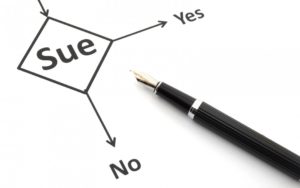by | | Uncategorized
Brian Elston Law is pleased to announce that it is relocating to the Patton Parker House effective January 1, 2017. The historic house is located at 95 Charlotte Street near downtown Asheville, NC.
The Patton Parker House is an ideal fit for Brian Elston Law’s mission and its clients. As an experienced workers’ compensation attorney and personal injury lawyer, Brian Elston understands that an injury at work or due to the negligence of another effects more than just the injured, but also their husband, wife, son, or daughter. The firm appreciates that being injured can put families through a very stressful time, even jeopardizing their own home. In addition, choosing an attorney to fight is more than just a business decision, but involves trusting someone with a once-in-a-lifetime legal matter. The firm looks forward to continuing to fight to protect the rights of the injured and their families and welcomes them to the Patton Parker House.
The Patton Parker House is conveniently located off of Charlotte Street, which can be accessed off of I-240 in Asheville. The House provides ample parking in the front and rear, and is handicap accessible.
The Patton Parker House, originally built in 1868, will showcase its rich history. Listed on the National Register of Historic Places and part of the Chestnut Hill Historic District, the house was built by Thomas W. Patton, a Civil War hero who rose to the rank of captain.
Patton served as Asheville mayor, Buncombe County commissioner and county tax collector. His efforts included trying to bring electricity to parts of the city and county, as well as helping local citizens in their day to day affairs. He returned to military service as a volunteer officer during the Spanish-American war. Patton also hosted a group of civic-minded women in November 1894 in support of women’s right to vote. The meeting launched the North Carolina Equal Suffrage Association and the campaign for voting rights for both sexes. His descendant, Mary Toole Parker, helped make Asheville’s YWCA the first integrated chapter in the South.
The home was purchased by Attorney Jim Siemens in 2015, ensuring the survival of a city landmark for future generations. “It turned out that Jim’s proposal was the most sensitive to the integrity of the house. We think that a professional use is the best use to keep the historic fabric” according to Jack W.L. Thomson, executive director of the Preservation Society (Asheville Citizen Times, November 2015).
Brian Elston Law will be sharing the House with Siemens Family Law Group, an established firm devoted to family law, that handles all matters that rise from the dissolution of marriages and domestic partnerships.
Pictures courtesy of Pack Memorial Library:
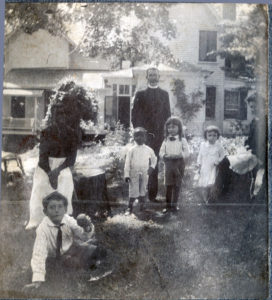
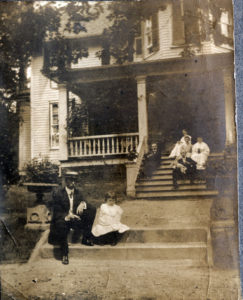
Circa 1901 Picture of Patton Parker House

Patton Parker House
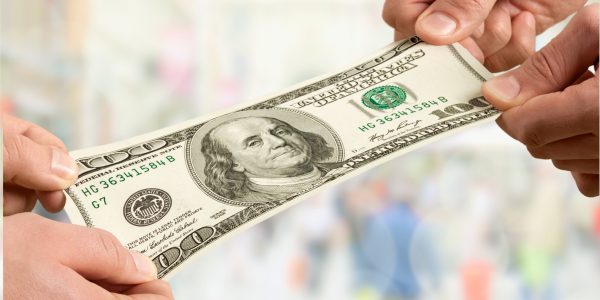
by | | Personal Injury, settlement
Can my ex get my settlement money?
The question that I’ve heard from time to time is “can my ex-spouse get my personal injury settlement or workers’ compensation checks for child support?”
The answer is case specific, and if you’ve been injured in an accident at work or were in a motor vehicle accident, I recommend contacting me to discuss the details. However, generally speaking, no, an ex-spouse is not automatically entitled to a personal injury settlement or an injured employee’s workers’ compensation checks.
However, if child support is owed by a noncustodial parent, also referred to as arrears, the North Carolina Department of Health and Human Services may create a child support lien against the insurance settlement. The lien is not available in all cases and is not automatic. For a more thorough discussion on North Carolina’s laws regarding child support and personal injury settlements, check out the following link here.
It is important to identify whether child support is an issue in workers’ compensation cases or personal injury cases. Injured workers and victims that are under a child support order should be aware that they may be able to petition the court to modify the order since they may be missing work due to the accident, and therefore not making as much. An application to modify a child support order in North Carolina is available here. Accident victims should realize that the modification is likely effective the date of the motion, and not the date of the accident. In other words, if you owe child support or under a child support order and were injured at work or elsewhere, you may want to contact an attorney, sooner than later in order to discuss your options.
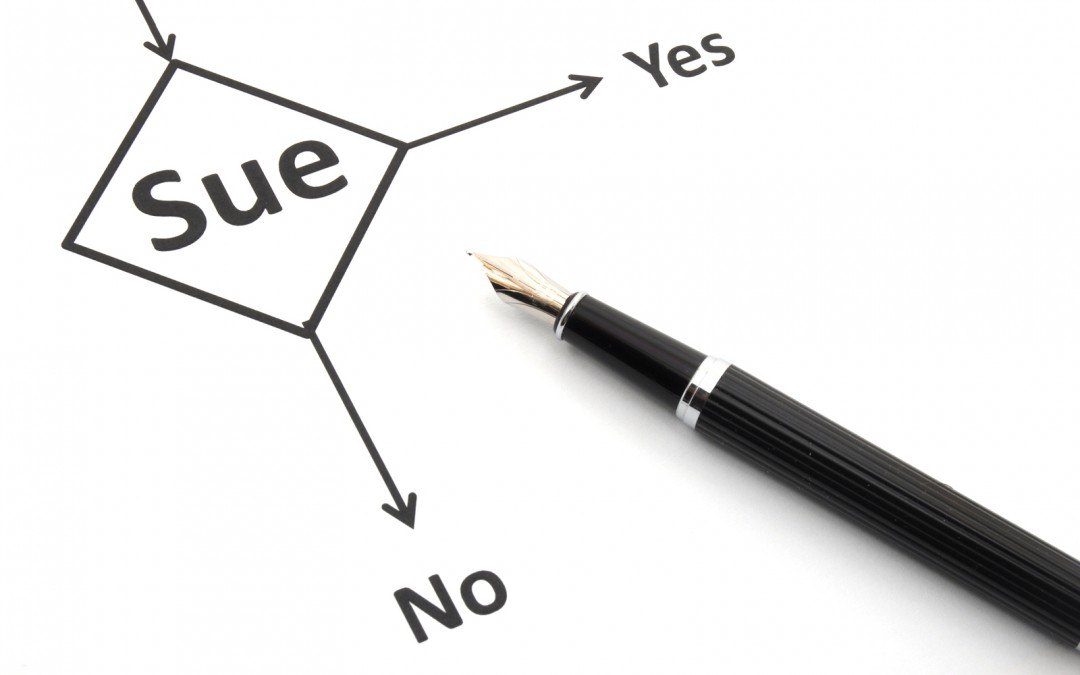
by | | Workers' Compensation
Can I sue my coworker and my employer?
“Can I sue my worker and my employer?” If you were injured at work because of a coworker, you may be able to sue your coworker and employer. Please feel free to give me a call to discuss because you may have a claim.
Typically, injuries on the job are exclusively governed by the North Carolina Workers Compensation Act. To initiate a claim, an employee notifies their employer of the injury by accident, and in accepted cases, benefits are provided under the Act. Generally speaking, an employee is unable to file suit, or sue, directly against their coworker.
For instance, a coworker and an employee are on a construction site. They are carrying some lumber across the job site. The coworker loses his grip and ends up dropping his end of the boards. The employee jars his back when the boards bang on the ground. The employee is able to file a claim under the Worker’s Compensation Act, but cannot sue his coworker.
To learn more about how Brian Elston Law can help you with Workers Compensation, click here »
So, can I sue my coworker and my employer?
There is an exception. If an employee is injured due to the willfully, recklessly wantonly negligent, or intentional act of a coworker, an employee can sue their employer and coworker.
For instance, the facts in Pleasant v. Johnson are instructive. In Johnson, an employee was on a construction site. A coworker was driving the company’s work truck. The coworker thought it would be funny to scare the plaintiff, so he drove the truck to see how close he could get to employee without striking him. The coworker misjudged the distance and ended up hitting employee. The employee was able to file a claim under the Workers’ Compensation Act and file a claim directly against the coworker because of his actions. In other words, an employee can sue their employer and the coworker.
Please feel free to call to schedule an appointment if you were injured at work.
Brian Elston Law is devoted to helping the injured and their families. We are personal injury lawyers in Asheville, North Carolina. To learn more, call now or check out more information:
Personal Injury »
Employment Law »
Workers Compensation »
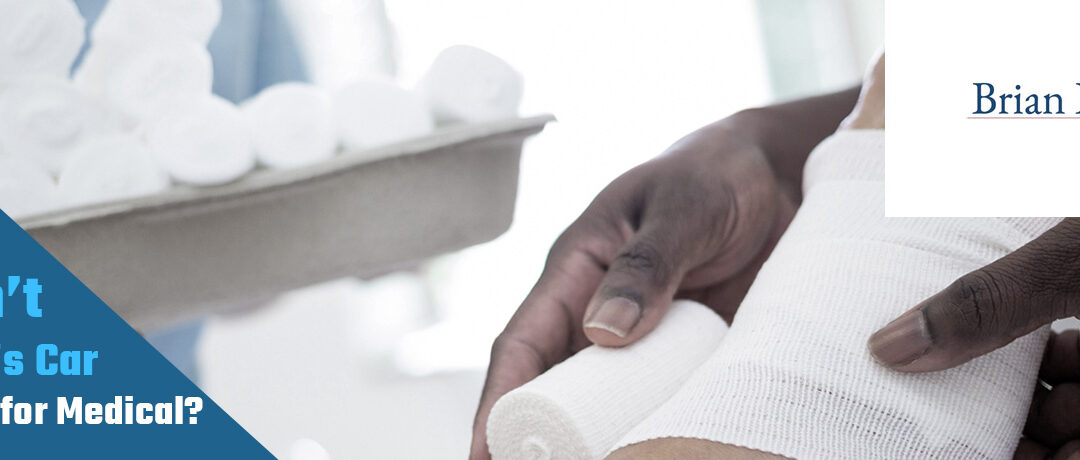
by | | Motor Vehicle Accident
Why won’t the other driver’s car insurance pay my medical bills?
Vehicle accidents can cause both physical and emotional damage and car insurance may not cover the repairs. Car insurance often pays well after treatment which means that bills and collection calls may put a strain on you before you have the ability to fix it. Brian Elston Law is well-versed in personal injury involving vehicle accidents and is ready to guide you through what you need to know — Contact us today.
Here’s the scenario:
– Your hit by another driver in a car accident
– The accident was not your fault
– You go to emergency room, or follow up with your doctor
– You tell them you were in a car accident
– Other driver’s insurance company admits fault
– You start receiving medical bills in the mail
– You call and tell the other driver’s insurance company. Other driver’s insurance company says they’ll take care of it
– Collection letters, from Revclaims, First Point, or Bull City for example, start to come in the mail
If you weren’t at fault, why are they asking you to pay for medical bills?
Unfortunately, car insurance doesn’t operate like health insurance. Generally speaking, car insurance companies do not pay for the injured-driver’s medical expenses as they are incurred. Instead, they make one lump sum payment, typically after the injured driver is through treating. This can put a real mental and financial strain on the driver who’s already hurt.
However, there are things that can be done to ensure that an injured driver has access to medical care. Accessing a driver’s “Medpay”, as explained in an earlier blog post, may provide monetary relief to an injured driver. A letter from an attorney notifying the medical provider about the situation and agreeing to protect the provider’s “lien” may allow an injured driver to continue to treat without having collection agencies chase after them.
If you are receiving collection letters from medical providers when you were in a motor vehicle accident that was not your fault, contact my office and we can discuss your legal rights and options.
by | | Uncategorized
I was hit by a drunk driver, does that make a difference in my case?
Yes. If you were hit by a drunk driver, then you may be entitled to recover “punitive damages.” Punitive damages can be awarded when the other driver’s actions were to such a degree, they can be classified as carelessness and recklessness, more than just ordinary negligence. Courts have held that the intentional act of driving while impaired is sufficiently reckless to warrant punitive damages. Ivey v. Rose, 94 N.C.App. 773, 776, 381 S.E.2d 476, 478 (1989).
However, punitive damages are not automatic. There has to be other circumstances beyond mere intoxication in order to award punitive damages. Howard v. Parker, 95 N.C.App. 361, 365, 382 S.E.2d 808, 810 (1989).
If you were hit by a drunk driver, or a driver that was charged with DWI/DUI, contact my office to review your case to see if you could be entitled to punitive damages.
What if you were hit by a driver that was drinking, but not charged with driving while impaired, could you be entitled to punitive damages?
Yes, but it depends on the circumstances. Take a look at the cases below to get an idea of what cases an a court would allow a jury to consider the issue of punitive damages.
- Driver fell asleep while driving and did not wake up until after his vehicle rear-ended victim’s car. The defendant driver conceded that he had consumed two beers and taken three prescriptions drugs prior to the incident. After the crash, the defendant driver went to a nearby house where he called the police. The police picked up the defendant and returned him to the scene and the state trooper gave defendant an Alco-Sensor test, which indicated defendant’s blood-alcohol level was below the legal limit. The Court of Appeals allowed the issue of punitive damages to go forward. Byrd v. Adams, 152 N.C. App. 460, 462, 568 S.E.2d 640, 642 (2002).
- Driver caused a collision after consuming two twelve ounce beers and fled the scene to avoid taking the Breathalyzer. Driver spent the entire night at a hotel before contacting police, and no blood alcohol content was ever obtained. Court of Appeals allowed the issue of punitive damages to go forward. Eatmon v. Andrews, 161 N.C. App. 536, 588 S.E.2d 564 (2003).
If you were hit by a driver that was drinking, contact my office and we can discuss whether you may be entitled to punitive damages.






